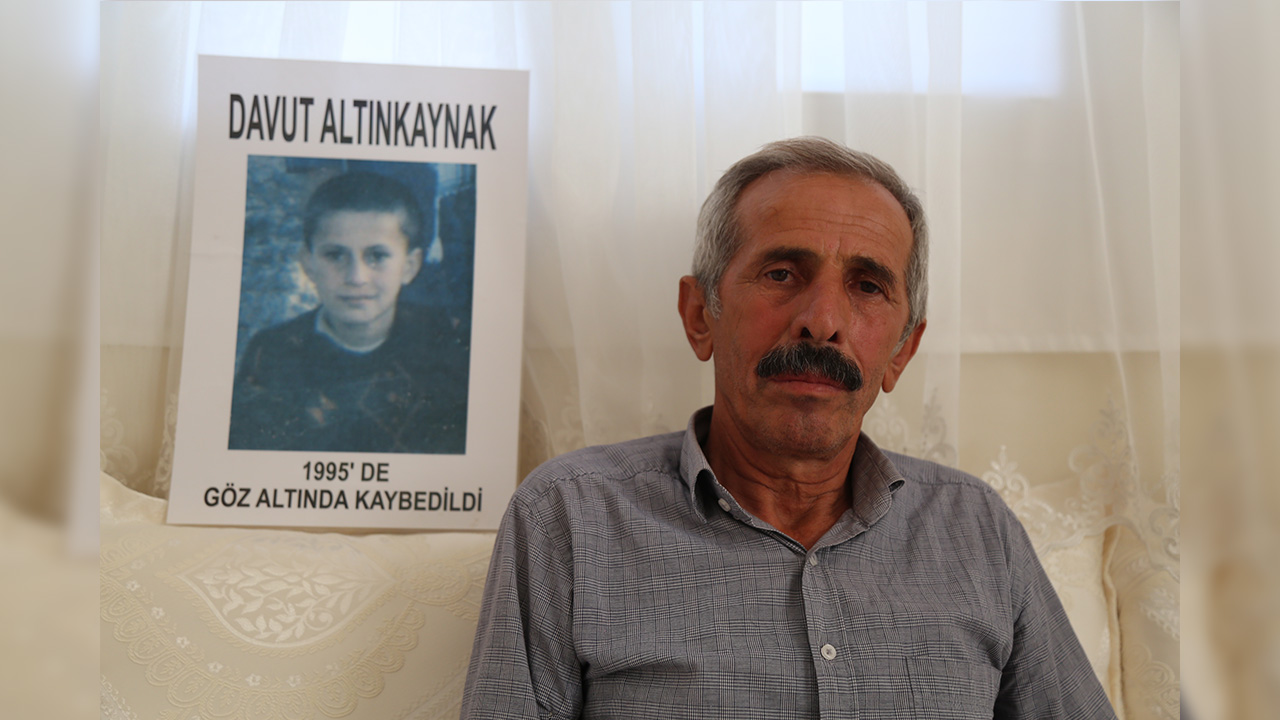The bones of Hakan Arslan, who was killed during the curfew and military operations in Dec 2015 in Diyarbakır’s (Amed) Sur district, seven years later were delivered to his father in a plastic bag.
Hakan Arslan’s father Ali Rıza Arslan did not realise he would have to collect his son’s remains from the courthouse. He had been expecting to receive his son’s body from the Forensic Medicine morgue in a coffin, he told BBC Turkish. “There was neither a prosecutor nor a judge, nor an officer. Somebody took the box with the bones of my 28-year-old son out of the closet and handed it to me,” he said, “I don’t remember how I received the box containing my son’s bones, I don’t remember how I took it, I was devastated.”
The Aslans are not the first Kurdish family to receive the remains of a relative years later. Similar events have been going on since the 1990s when the Kurdish conflict was at its peak.
A Kurdish father who received the bones of his 12-year-old son 20 years after his death in custody, spoke to Mezopotamya Agency.
Davut Altınkaynak was 12 when he was detained in Mardin (Mêrdîn) in 1995, along with eight others in a house raid by Turkey’s Gendarmerie Intelligence and Counter-terrorism Department (JİTEM). Among the eight was Davut’s mother, who later said the last time she saw her son alive was when he was hanged on a torture rack in the police station.
Remains were discovered in a well in 2015, and in May 2016 a DNA analysis revealed the bones belonged to Davut Altınkaynak. Afterwards, the prosecutor’s office delivered the boy’s bones to his family in a sack.
On the same day that Altınkaynak’s Father received the morbid delivery, another delivery arrived to the Akyön family home. Remains of Nedim Akyön, 16 years old, were delivered in another sack.
Both families requested the prosecutor’s office to maintain the remains in proper storage a little longer as they prepared the funerals, but the prosecutor’s office rejected this request.
“We signed the delivery note. They brought us two white sacks with our children’s names written on them. They took our children alive, and delivered them in a sack,” Altınkaynak said.
“They should have given those bones back in coffins, in a humane manner. But they don’t consider us Kurds human beings,” the father said. “I will never forget. If Davut had not been a Kurd, they would have given the perpetrator a life sentence. But Davut was a Kurdish boy. They thought this was what my son deserved, and what Hakan Arslan deserved.”
A prosecutor at the chief public prosecutor’s office in Diyarbakır was responsible for the recording and processing of the human remains in question as forensic property and evidence. The Diyarbakır Bar Association, stating that this practice is against the law, filed a complaint with the Council of Judges and Prosecutors (HSK) about the prosecutor who filed the remains.
Delivery of human remains in this manner is unacceptable “due to humanitarian law norms and social, cultural and religious values”, the bar association said in their petition. “Domestic and international law state in detail how such deliveries should be made, respecting the person’s memory and protecting the right to be buried. This treatment towards the deceased constitutes the crime of torture and ill-treatment. This practice violates the norms of respect for and protection of the dead, and the right to a decent burial.”
According to the Human Rights Association (İHD), there have been at least 900 cases of enforced disappearance in Turkey. In addition, the İHD reports that over 3,000 victims of extrajudicial killings are buried in 253 separate sites.










